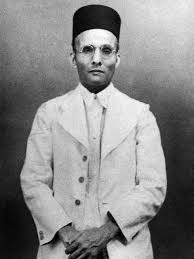The Life and Legacy of Vinayak Damodar Savarkar

Introduction
Vinayak Damodar Savarkar, often referred to simply as Veer Savarkar, holds a significant place in Indian history as a freedom fighter, poet, and politician. His contributions to the Indian independence movement and his ideas on Hindu nationalism have sparked extensive debate. His relevance in today’s sociopolitical landscape cannot be understated, as discussions around his ideology of Hindutva and its impact on contemporary politics continue to resonate.
Early Life and Education
Born on May 28, 1883, in a small village in Maharashtra, Savarkar was greatly influenced by the political climate of his time. He pursued his education in Pune, where he became involved in revolutionary activities. His activism against British rule led him to England, where he proposed a plan for India’s independence through an armed revolution.
Contributions to the Freedom Movement
During his time in England, Savarkar wrote his influential book, The First War of Indian Independence 1857, which reinterpreted the events of the Sepoy Mutiny as India’s first fight for freedom. His revolutionary activities resulted in his arrest in 1909 and subsequent life sentence, which led to his imprisonment in the infamous Andaman Islands Cellular Jail for over a decade.
Hindutva and Political Ideology
After his release in 1924, Savarkar turned to politics and popularized the term ‘Hindutva’, advocating for a Hindu identity that transcended regional and caste divisions. His political ideology significantly influenced Hindu nationalist movements and is often associated with the formation of the Rashtriya Swayamsevak Sangh (RSS) and the Bharatiya Janata Party (BJP). While his perspectives on Hindu-Muslim relations have been contentious, his impact on Indian politics remains undeniable.
Controversies and Legacy
Savarkar’s legacy is mired in controversy. While many view him as a martyr for his commitments to Indian nationalism, others criticize his ideas as divisive. Notably, he was acquitted in a trial related to the assassination of Mahatma Gandhi, further polarizing opinions about his role in the freedom struggle.
Conclusion
Vinayak Damodar Savarkar’s life and ideology continue to be a topic of significant discourse in India. As new political movements shape the country’s future, understanding Savarkar’s impact on the past and present strategy of Hindu nationalism is essential. His complex legacy reflects the diverse and often contentious narratives that define India’s quest for identity and unity. For readers, reflecting upon Savarkar’s life is not just about history, but also about the ongoing dialogue surrounding nationalism and identity in contemporary India.









